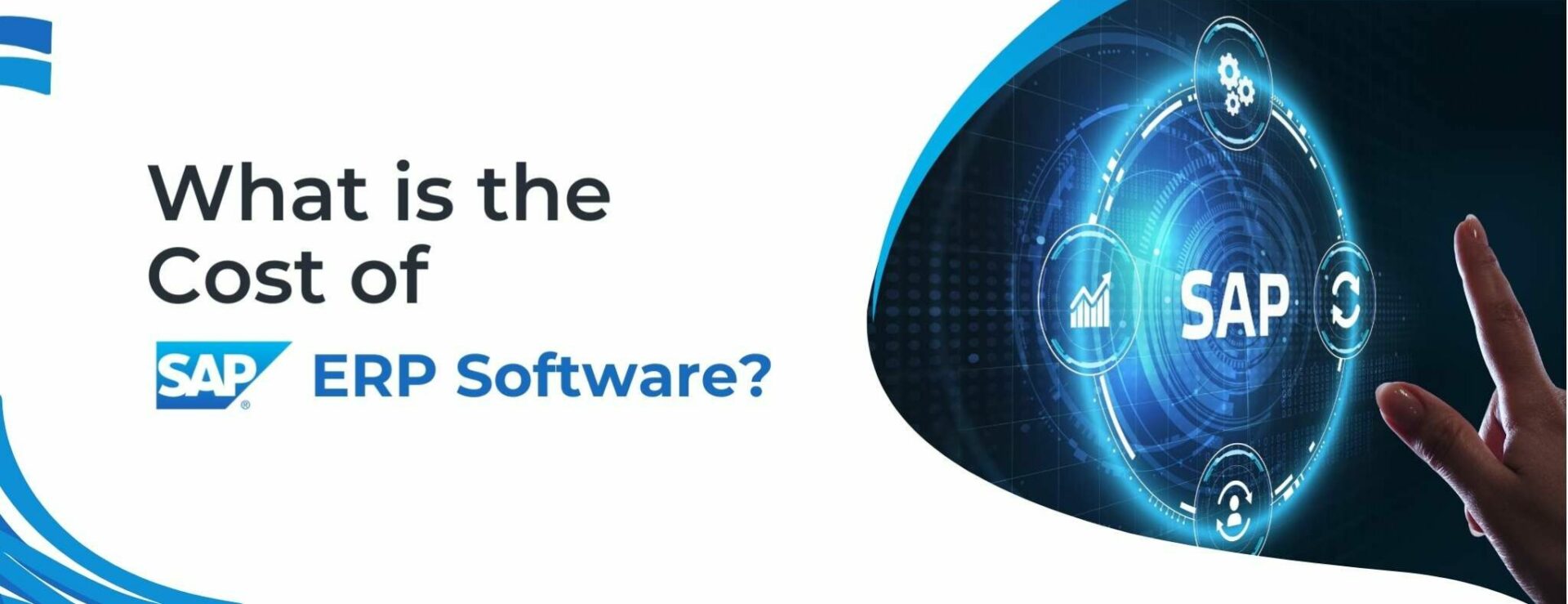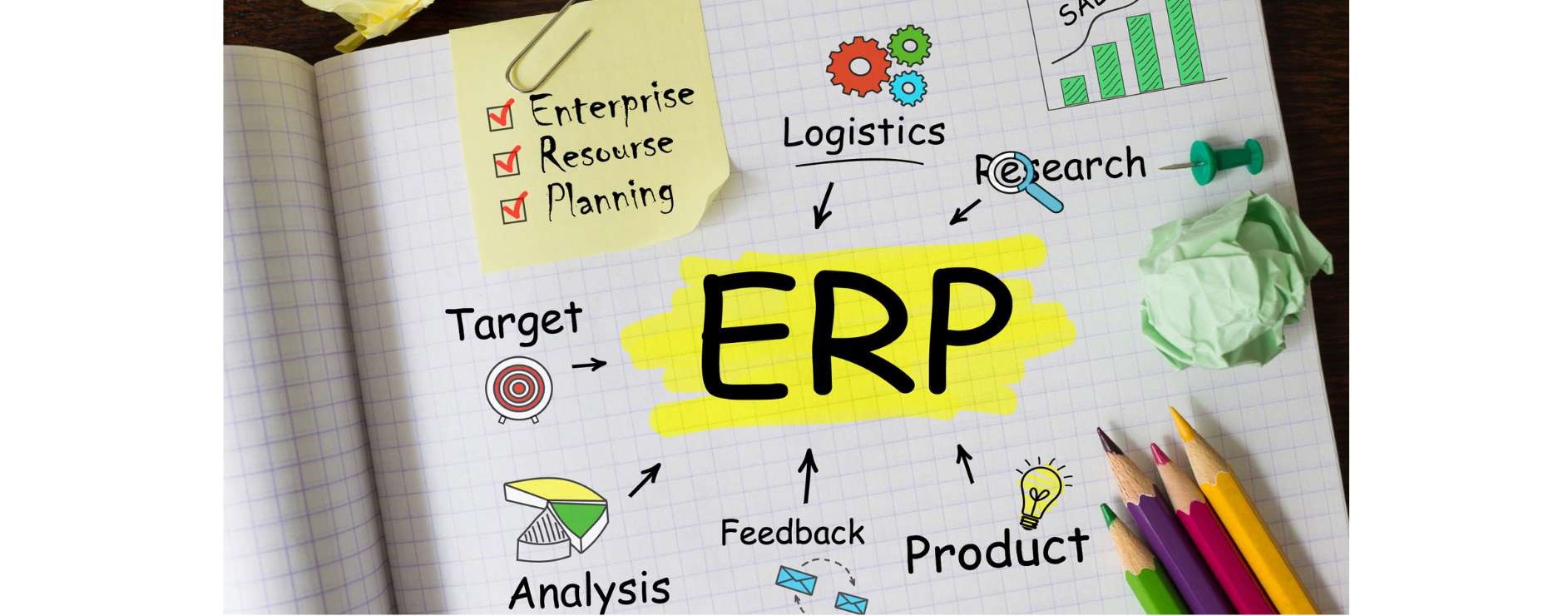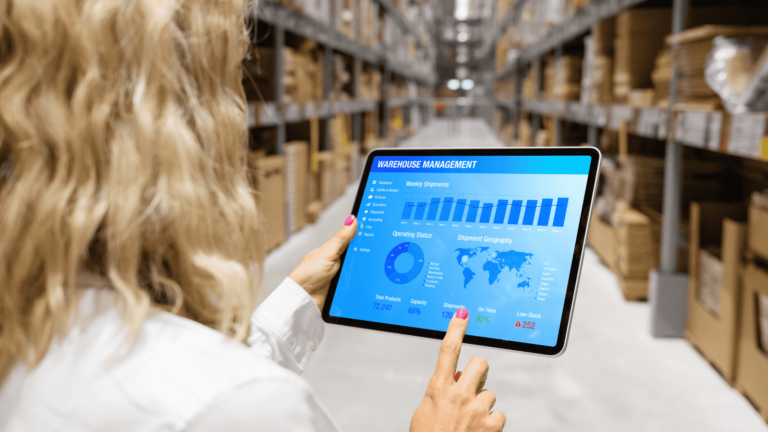Introduction
Enterprises constantly seek ways to streamline operations, enhance efficiency, and gain a competitive edge. This quest for optimization has led to the rise of Enterprise Resource Planning (ERP) systems, and one name that stands out in the ERP landscape is SAP ERP. In this blog, we will explore the world of SAP ERP, understanding its definition, features, advantages, disadvantages, and why it is regarded as the best ERP solution. Moreover, we will delve into the significance of the SAP ERP experience and explore the future of SAP across various industries.

What is SAP ERP?
At the core of modern business management, SAP ERP (Systems, Applications, and Products in Data Processing – Enterprise Resource Planning) is a robust and scalable software suite developed by the German software giant SAP SE. It is a centralized platform that seamlessly integrates and manages diverse business processes across different functional areas, including finance, sales, procurement, human resources, etc. With real-time data visibility and efficient communication, SAP ERP empowers organizations to make informed decisions, enhance productivity, and optimize resource utilization.
What is SAP ERP Full Form?
As mentioned earlier, the full form of SAP ERP is “Systems, Applications, and Products in Data Processing – Enterprise Resource Planning.” Born in 1972 in Mannheim, Germany, SAP has evolved into a global leader, offering various software solutions to cater to diverse business needs.
How Does SAP ERP Work?
At its core, SAP ERP operates on an integrated platform that connects different organizational modules and departments. The software’s architecture facilitates seamless data exchange, ensuring relevant information is accessible to the right individuals at the right time. This integration goes beyond traditional business functions and extends to emerging technologies like artificial intelligence (AI) and the Internet of Things (IoT). With AI, SAP ERP can analyze vast amounts of data, providing valuable insights for decision-making. Moreover, IoT integration allows SAP ERP to collect real-time data from connected devices, enhancing supply chain visibility and predictive maintenance capabilities.
What is SAP ERP Definition?
SAP ERP is a sophisticated business process management software integrating diverse organizational functions into a unified system. By eliminating data silos and enhancing collaboration, SAP ERP provides a comprehensive view of an organization’s operations, leading to better decision-making and streamlined workflows. The adaptability of SAP ERP to meet industry-specific requirements further contributes to its popularity across various sectors.
Is SAP ERP Cloud-Based ERP?
Yes, SAP ERP offers cloud-based ERP deployment options in addition to traditional on-premises installations. Recognizing the growing demand for flexibility and scalability, SAP SE has ventured into cloud-based solutions, enabling businesses to leverage their ERP system via the cloud. SAP’s Cloud based ERP comes with numerous advantages, including reduced upfront costs, faster implementation, automatic updates, and enhanced accessibility from anywhere with an internet connection. This cloud based approach aligns with the current digital transformation trend and empowers organizations to stay agile and responsive to changing business needs.
By incorporating these additional insights, we can further enrich the understanding of SAP ERP, its benefits, and its future impact on various industries.

What is the Cost of SAP ERP Software?
The cost of implementing SAP ERP varies based on several factors, such as the organization’s size, the scope of implementation, customization requirements, and the chosen deployment method (cloud or on-premises). Organizations should view SAP ERP as an investment rather than a mere purchase, as it yields long-term benefits through streamlined operations, increased productivity, and improved decision-making capabilities.
What are the Advantages of Using SAP Software for ERP?
The adoption of SAP ERP brings forth a plethora of advantages for businesses seeking an integrated management system. Some notable benefits include:
- Streamlined Processes: SAP ERP eliminates redundant processes and promotes consistency, improving operational efficiency.
- Real-Time Data: With a centralized database, SAP ERP provides real-time data visibility, allowing for better decision-making and faster responses to market changes.
- Enhanced Collaboration: Integrating various departments fosters better organizational communication and collaboration.
- Regulatory Compliance: SAP ERP assists in meeting industry-specific regulations and compliance requirements.
- Scalability: The software can grow with the organization, accommodating changing business needs and supporting expansion.

What are the Disadvantages of Using SAP Software for ERP?
While SAP ERP is a powerful solution, it’s essential to be aware of potential challenges:
- Cost: The initial investment and ongoing maintenance costs can be significant, especially for small businesses.
- Complexity: Implementing SAP ERP may require significant time and effort, especially for organizations with complex structures or processes.
- Customization: Extensive customization might involve additional costs and potential compatibility issues with future upgrades.
- User Training: SAP ERP’s comprehensive nature may require extensive user training to ensure effective usage and maximize its potential.
- Integration: Integrating SAP ERP with existing legacy systems can be challenging and may require additional expertise.
Why is SAP ERP Best?
SAP ERP stands out as one of the best ERP solutions for several reasons:
- Proven Track Record: SAP ERP has a long history of successful implementations across diverse industries, earning the trust of businesses globally.
- Comprehensive Functionality: The wide array of modules and features cater to various business functions, offering an all-inclusive solution.
- Industry-Specific Solutions: SAP ERP can be tailored to meet specific industry requirements, ensuring a customized approach.
- Global Reach and Support: SAP’s extensive global network ensures reliable support and continuous improvement of its products.
- Innovation: SAP SE continuously invests in research and development, keeping its software at the forefront of technological advancements.
Why is SAP ERP Best?
SAP ERP stands out as the best ERP solution for several reasons. One of the key factors contributing to its excellence is its extensive track record of successful implementation across diverse industries. SAP’s comprehensive functionality, industry-specific solutions, and global reach make it a trusted choice for businesses worldwide. Moreover, SAP SE’s commitment to innovation and continuous improvement keeps its ERP software at the forefront of technological advancements. As the ERP landscape evolves, SAP’s adaptability and scalability position it as a preferred solution for organizations seeking to optimize their operations and drive business growth.
The difference Between SAP and ERP
While “SAP” and “ERP” are often used interchangeably, it’s essential to understand the distinction between them. ERP, or Enterprise Resource Planning, refers to a category of software that integrates and manages various business processes within an organization. SAP, on the other hand, is a specific company that provides its ERP software, known as SAP ERP. While SAP ERP is one of the leading ERP solutions available, other ERP vendors in the market offer similar systems tailored to different industries.
The Future of SAP in All Industries
As SAP ERP continues to evolve, its impact across industries is poised to grow exponentially. The ERP landscape is witnessing significant transformations, with SAP at the forefront of innovation and adaptation. Let’s explore how SAP’s future looks across various sectors:
- Manufacturing Industry: SAP ERP enables manufacturing companies to optimize their supply chain, manage production processes efficiently, and ensure real-time visibility into inventory levels. Integrating SAP’s manufacturing solutions with emerging technologies like IoT and AI is set to revolutionize production and enhance product quality.
- Retail and E-commerce: SAP ERP equips retailers with data-driven insights into customer behavior, inventory management, and sales patterns, leading to personalized customer experiences and streamlined operations. With the rise of omnichannel retailing, SAP’s cloud-based solutions will likely play a vital role in enhancing customer engagement and satisfaction.
- Healthcare: In the healthcare sector, SAP ERP is poised to improve patient care through streamlined processes, better resource allocation, and effective data management. As patient data security remains a priority, SAP’s robust data protection mechanisms will be instrumental in safeguarding sensitive medical information.
- Finance and Banking: SAP ERP’s finance modules offer comprehensive financial planning, real-time reporting, and risk management capabilities. With the evolving regulatory landscape and the demand for data-driven decision-making in the finance sector, SAP’s analytics and reporting tools will continue to be essential.
- Automotive Industry: SAP’s integration of its ERP system with smart manufacturing technologies will drive innovation in the automotive industry. From advanced supply chain management to predictive maintenance, SAP ERP’s features will facilitate leaner operations and enhance product quality.
- Telecommunications: SAP ERP will play a significant role in enabling the telecommunications industry’s transition to 5G technology. SAP ERP will enhance telecom operators’ competitiveness by optimizing network management, improving customer service, and facilitating efficient billing and revenue management.
- Oil and Gas: With the oil and gas industry’s focus on operational efficiency and cost reduction, SAP ERP will aid in optimizing supply chain processes, equipment maintenance, and compliance management. Integrating SAP ERP with AI and IoT technologies will enhance predictive maintenance and asset management.
Conclusion
SAP ERP stands as a powerful and adaptable solution that continues to shape the landscape of modern business management. With its comprehensive functionalities, industry-specific solutions, and innovative features, SAP ERP empowers organizations to thrive in the digital era. While it comes with challenges, its numerous advantages, and continuous evolution solidify its position as one of the best ERP solutions available. As industries embrace SAP ERP and leverage its potential, the future holds promising opportunities for enhanced productivity, streamlined operations, and unprecedented growth.



